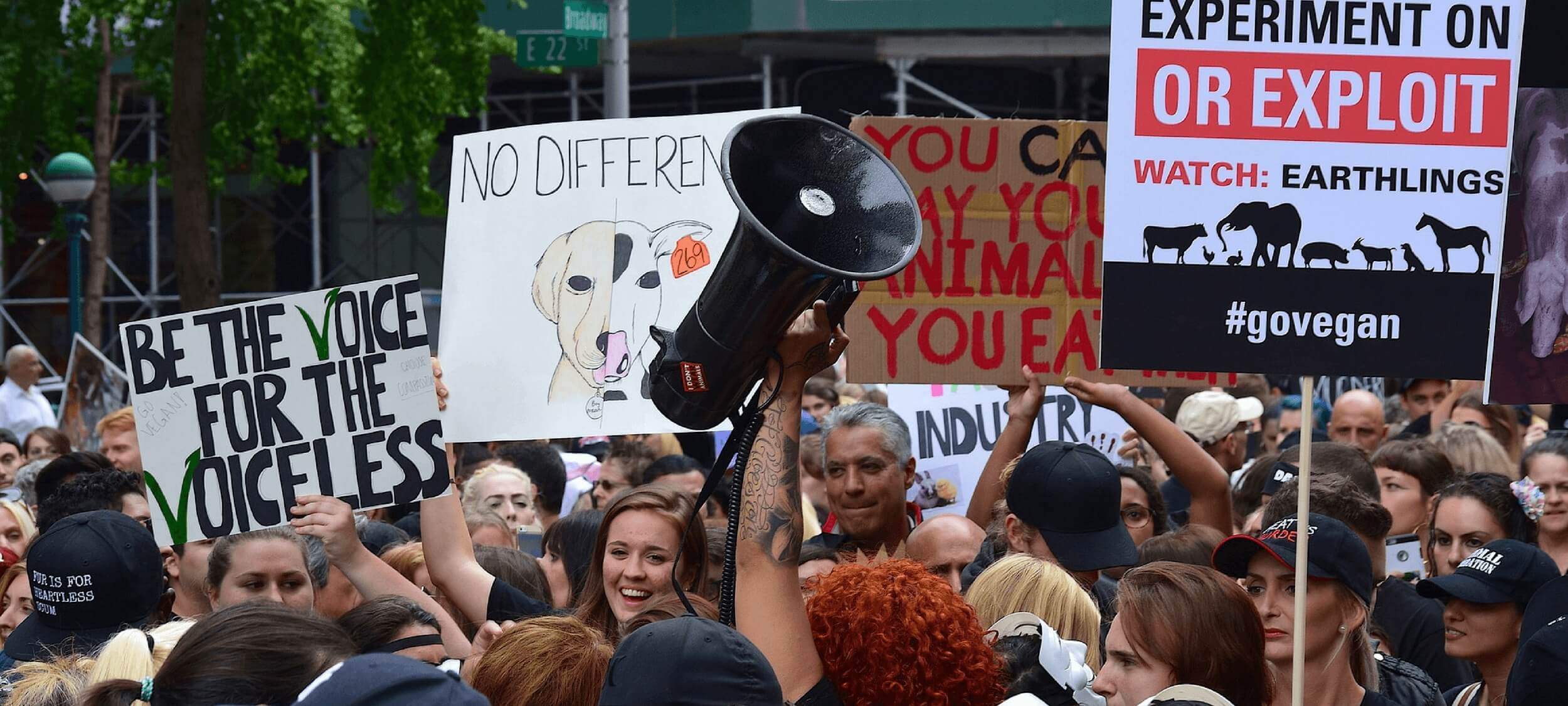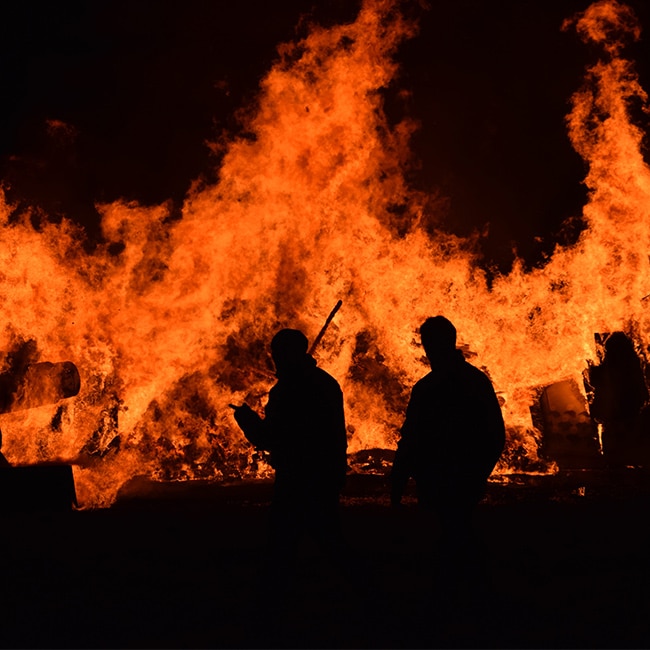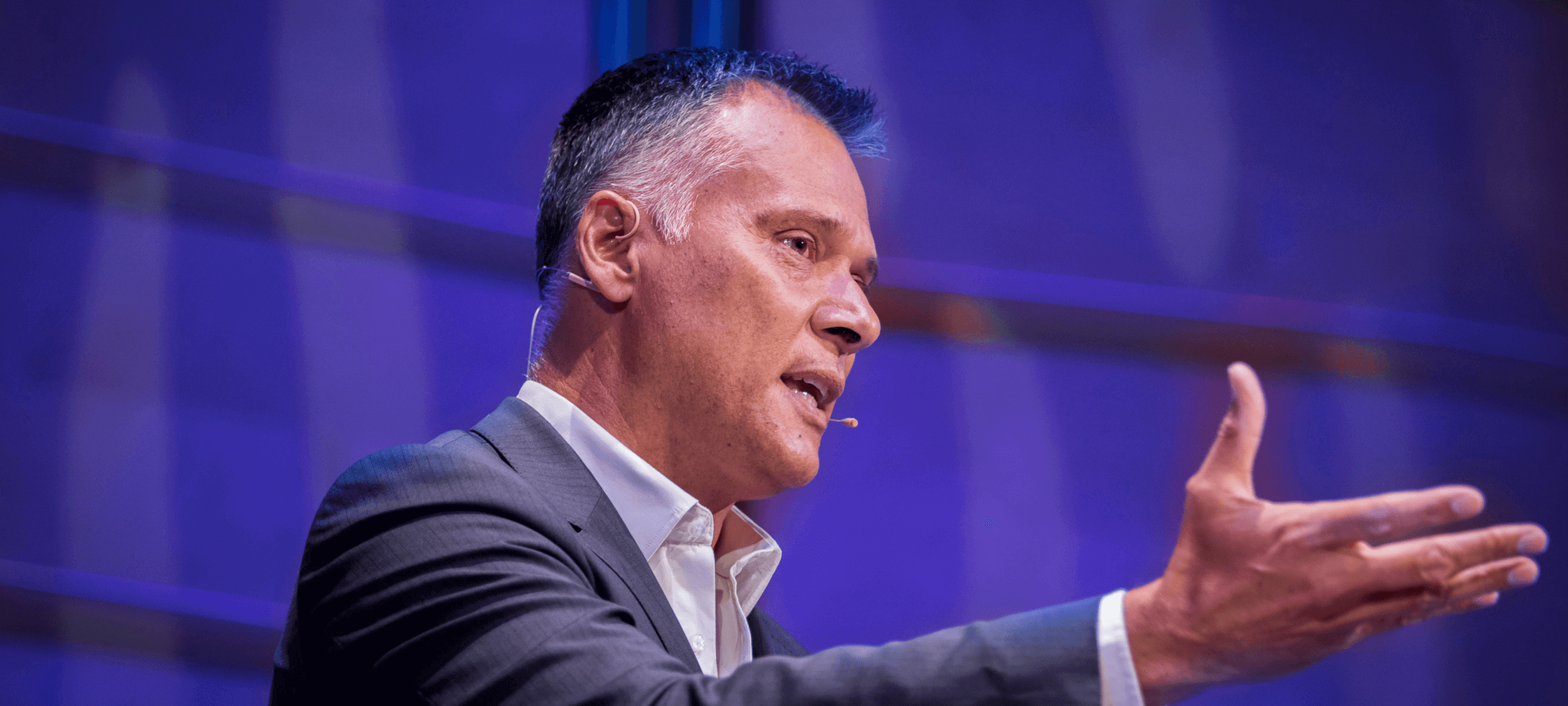How should vegans live?

How should vegans live?
Opinion + AnalysisClimate + EnvironmentHealth + Wellbeing
BY XAVIER COHEN The Ethics Centre 24 JAN 2016
Ethical vegans make a concerted lifestyle choice based on ethical – rather than, say, dietary – concerns. But what are the ethical concerns that lead them to practise veganism?
In this essay, I focus exclusively on that significant portion of vegans who believe consuming foods that contain animal products to be wrong because they care about harm to animals, perhaps insofar as they have rights, perhaps just because they are sentient beings who can suffer, or perhaps for some other reason.
Throughout the essay, I take this conviction as a given, that is, I do not evaluate it, but instead investigate what lifestyle is in fact consistent with caring about harm to animals, which I will begin by calling consistent veganism. I argue that the lifestyle that consistently follows from this underlying conviction behind many people’s veganism is in fact distinct from a vegan lifestyle.
It is probably the case that one cannot live without causing harm to animals due to the trade-off in welfare between other animals who are harmed by one’s own consumption.
Let us also begin by interpreting veganism in the way that many vegans – and most who are aware of veganism – would. A vegan consumes a diet containing no animal products. In conceiving of veganism in terms of what a diet contains, there seems to be an intuition about the moral relevance of directness, according to which it matters how direct the harm caused by the consumption of the food is with regards to the consumption of the food.
On this intuition, eating a piece of meat is worse than eating a certain amount of apples grown with pesticides that causes the same amount of harm, because the harm in the first case seems to be more directly related to the consumption of the food than in the second case. Harm from the pesticides seems to be a side-effect of eating the food, whereas the death of the animal for meat seems to be a means to the eating food.
Even if we grant this intuition to be a good in this case, it is not good in the case where the harm is greater from the apples than from the meat. To eat the apples in this case is to not put one’s care about harm to animals first, which means going against the only thing that should motivate a consistent vegan.
Here, our intuition about the amount of harm caused is what seems to matter; if what we care about is harm to animals, then we should cause less rather than more harm to animals, and therefore, from the moral point of view, it seems that it is better to eat the meat than the apples. Let the conviction in this intuition be called the ‘less-is-best’ thesis.
Therefore, the intuition about the directness of the harm is only potentially relevant in situations where one has to choose between alternatives that cause the same amount of harm, or in situations where one does not know which causes more harm. The rest of the time, it seems that consistent vegans should not care about the directness of the harm, but instead care only about causing less rather than more harm to animals.
Consistent vegans should not care about the directness of the harm, but instead care only about causing less rather than more harm to animals.
This requires an awareness of harm that extends further than relatively common considerations noted by vegans regarding animal products being used in the production process for—but not being contained in—foodstuffs like alcoholic drinks. Caring about harm to animals means caring about, less directly, accidental harm to (usually very small) animals from the harvesting process, and from products that have a significant carbon footprint, and thereby contribute to (and worsen) climate change, which is already starting to lead to countless deaths and harm to animals worldwide.
However, caring about harm to animals cannot plausibly require consistent vegans to cause no harm at all to animals. If it did, then in light of the last two examples given above, it seems it would require consistent veganism to be a particularly ascetic kind of prehistoric or Robinson Crusoe-type lifestyle, which would clearly be far too demanding.
In fact, it is probably the case that one cannot live without causing harm to animals due to the trade-off in welfare between other animals who are harmed by one’s own consumption, and oneself (an animal) who is harmed if one cannot consume what one needs to survive. But it is definitely the case that all humans could not survive if no harm to other animals could be caused; this means that either human animals or non-human animals will be harmed regardless of how we live.
We could not all be morally obligated to live in such a way that we could not in fact all live. Therefore, due to this argument and due to such a lifestyle being over-demanding, there are two sufficient arguments for why causing some harm to animals is morally permissible.
If it is the case that causing some harm to animals is morally permissible, then there is no clear reason why there should be a categorical difference in the moral status of acts – such as impermissibility, permissibility, and obligation – with regards to how they harm animals, apart from when these categorical differences arise only from vast differences in the amount of harm caused by different acts.
One’s care for animals should be further-reaching: rather than merely caring about harm one causes, a consistent vegan should care about acting or living in a way that leads to less rather than more harm to animals.
So, for example, shooting a vast number of animals merely for the pleasure of sport may well be impermissible, but only insofar as it causes a much greater amount of harm than alternative acts that one could reasonably do instead of hunting. It seems that the most reasonable position, then, which is in line with the less-is-best thesis, is that the morality of harm to animals is best viewed on a continuum on which causing less harm to animals is morally better and causing more harm to animals is morally worse, where the difference in morality is linked only to the difference in the amount of harm to animals.
Hitherto, I have said that it seems to be the case that consistent vegans care about causing less rather than more harm to animals. However, I claim that the less-is-best thesis should in fact be interpreted as having a wider application than merely harm caused by our actions or life lived. One’s care for animals should be further-reaching: rather than merely caring about harm one causes, a consistent vegan should care about acting or living in a way that leads to less rather than more harm to animals. The latter includes a concern about harm caused by others that one can prevent, which the former excludes as it is not harm caused by oneself.
The impact of social interaction on people’s lifestyles is an important way in which consistent vegans can act or live in a way that leads to less rather than more harm to animals. That nearly all vegans are in fact vegans because they were previously introduced to vegan ideas by others – rather than coming by them and becoming vegan through sheer introspection – is testimony to the impact of social interaction on people’s lifestyles, which in turn can be more or less harmful to animals.
If this recommended lifestyle is too demanding, many will reject it or simply not change, meaning that these people will continue to harm animals.
Consistent vegans have the potential to build a broad social movement that encourages many others to lead lives that cause less harm to animals. But in order to do this, consistent vegans will have to persuade those who do not care about harm to animals (or let care about harm to animals impact their lifestyle) to lead a different kind of lifestyle, and if this recommended lifestyle is too demanding, many will reject it or simply not change, meaning that these people will continue to harm animals.
The vegan lifestyle may seem too hard for many people
If these people are more likely to make lifestyle changes if the lifestyle suggested to them is less demanding, which for many – and probably a vast majority – will be the case, then consistent vegans could bring about less harm to animals if they try to persuade these people to live lifestyles that optimally satisfy the trade-off between demandingness and personal harm to animals. This lifestyle that consistent vegans should attempt to persuade others to follow I shall call “environmentarianism”.
Why ‘environmentarianism’? And what is the content of environmentarianism? Care about harm to animals can be framed in terms of care for the environment, as the environment is partially – and in a morally important way—constituted by animals. This can be easily – and I believe quite intuitively – communicated to those who do care about harm to animals, and those who do not are likely to be more swayed by arguments that are framed in terms of concern for the environment than for animals. Concern for oneself, one’s loved ones, and one’s species – things that most people care greatly about – may be more easily read into the former than the latter, especially in light of impending climate change.
Environmentarianism, then, is the set of lifestyles that seek to reduce harm done to the environment (which is conceived in terms of harm to animals for consistent vegans) – as this matters morally for environmentarians – regardless of which sphere of life this reduction of harm comes from. Be it rational or not, ascribing the title and social institution of ‘environmentarian’ to one’s life will, for many, make them more likely to lead a life that is more in line with caring about harm to animals; people often attach themselves to these titles, as the dogmatic behaviour of many vegans shows.
Some may prefer to reduce total harm to animals by a given amount by making the sacrifice of having a vegan diet, but not compromising on their regular car journey to work, whilst others may find taking on the latter easier than maintaining the strict vegan diet.
Moreover, environmentarianism can be practised to a more or less radical – and thus moral – extent. Some may prefer to reduce total harm to animals by a given amount by making the sacrifice of having a vegan diet, but not compromising on their regular car journey to work, or perhaps by opting out of what for them may be uncomfortable proselytising, whilst others may find taking on the latter two easier than maintaining the strict vegan diet (that they perhaps used to have). Some may reduce total harm by an even greater amount – and hence lead a morally better lifestyle – by having a vegan diet and by refraining from harmful transport and by actively suggesting environmentarianism to others.
As an environmentarian may begin by making very small changes, one can be welcomed into a social movement and be eased in to making further lifestyle changes over time, rather than being put off by the strictness of veganism or the antagonism typical of some vegans. Environmentarianism has the great advantage of making it easier for the many who cannot face the idea of never eating animal products again to live more ethically-driven lives.
It follows from all this, then, that consistent vegans should be (especially stringent) environmentarians. For the given impact they have on the total harm to animals, it does not matter if this comes from a totally vegan diet. In fact, to be fixated on dietary purity to the neglect of other spheres of one’s life – in the way that many vegans are – is to contradict a care about harms to animals. With this care given, what matters is lowering the level of harm to animals, regardless of how this harm is done.
This article was republished with permission from the Journal of Practical Ethics.
Ethics in your inbox.
Get the latest inspiration, intelligence, events & more.
By signing up you agree to our privacy policy
You might be interested in…
Opinion + Analysis
Climate + Environment, Politics + Human Rights
Increase or reduce immigration? Recommended reads
Opinion + Analysis
Health + Wellbeing
Ethics from the couch: 5 shows to binge on
Opinion + Analysis
Climate + Environment, Politics + Human Rights, Relationships
A burning question about the bushfires
Big thinker
Climate + Environment
7 thinkers improving our ethical understanding of the environment
BY XAVIER COHEN
Oxford student Xavier Cohen, was one of the two finalists in the undergraduate category of the inaugural Oxford Uehiro Prize in Practical Ethics.
BY The Ethics Centre
The Ethics Centre is a not-for-profit organisation developing innovative programs, services and experiences, designed to bring ethics to the centre of professional and personal life.
Stan Grant: racism and the Australian dream
On the IQ2 stage in 2015, Stan Grant opened the hearts and minds of the audience with his powerful speech on racism in Australia.
The IQ2 debate, ‘Racism is Destroying the Australian Dream’ was a finalist in the United Nations Media Peace Awards for its role in stimulating public awareness and understanding. Stan’s iconic talk continues to move and inspire millions.
COMPLETE TRANSCRIPT
“Thank you so much for coming along this evening and I would also like to extend my respects to my Gadigal brothers and sisters from my people, the Wiradjuri people.
In the winter of 2015, Australia turned to face itself. It looked into its soul and it had to ask this question. Who are we? What sort of country do we want to be? And this happened in a place that is most holy, most sacred to Australians. It happened in the sporting field, it happened on the football field. Suddenly the front page was on the back page, it was in the grandstands.
Thousands of voices rose to hound an Indigenous man. A man who was told he wasn’t Australian. A man who was told he wasn’t Australian of the Year. And they hounded that man into submission.
I can’t speak for what lay in the hearts of the people who booed Adam Goodes. But I can tell you what we heard when we heard those boos. We heard a sound that was very familiar to us.
We heard a howl. We heard a howl of humiliation that echoes across two centuries of dispossession, injustice, suffering and survival. We heard the howl of the Australian dream and it said to us again, you’re not welcome.
The Australian Dream.
We sing of it, and we recite it in verse. Australians all, let us rejoice for we are young and free.
My people die young in this country. We die ten years younger than average Australians and we are far from free. We are fewer than three percent of the Australian population and yet we are 25 percent, a quarter of those Australians locked up in our prisons and if you are a juvenile, it is worse, it is 50 percent. An Indigenous child is more likely to be locked up in prison than they are to finish high school.
I love a sunburned country, a land of sweeping plains, of rugged mountain ranges.
It reminds me that my people were killed on those plains. We were shot on those plains, disease ravaged us on those plains.
I come from those plains. I come from a people west of the Blue Mountains, the Wiradjuri people, where in the 1820’s, the soldiers and settlers waged a war of extermination against my people. Yes, a war of extermination! That was the language used at the time. Go to the Sydney Gazette and look it up and read about it. Martial law was declared and my people could be shot on sight. Those rugged mountain ranges, my people, women and children were herded over those ranges to their deaths.
The Australian Dream.
The Australian Dream is rooted in racism. It is the very foundation of the dream. It is there at the birth of the nation. It is there in terra nullius. An empty land. A land for the taking. Sixty thousand years of occupation. A people who made the first seafaring journey in the history of mankind. A people of law, a people of lore, a people of music and art and dance and politics. None of it mattered because our rights were extinguished because we were not here according to British law.
And when British people looked at us, they saw something sub-human, and if we were human at all, we occupied the lowest rung on civilisation’s ladder. We were fly-blown, stone age savages and that was the language that was used. Charles Dickens, the great writer of the age, when referring to the noble savage of which we were counted among, said “it would be better that they be wiped off the face of the earth.” Captain Arthur Phillip, a man of enlightenment, a man who was instructed to make peace with the so-called natives in a matter of years, was sending out raiding parties with the instruction, “Bring back the severed heads of the black troublemakers.”
They were smoothing the dying pillow.
My people were rounded up and put on missions from where if you escaped, you were hunted down, you were roped and tied and dragged back, and it happened here. It happened on the mission that my grandmother and my great grandmother are from, the Warrengesda on the Darling Point of the Murrumbidgee River.
Read about it. It happened.
By 1901 when we became a nation, when we federated the colonies, we were nowhere. We’re not in the Constitution, save for ‘race provisions’ which allowed for laws to be made that would take our children, that would invade our privacy, that would tell us who we could marry and tell us where we could live.
The Australian Dream.
By 1963, the year of my birth, the dispossession was continuing. Police came at gunpoint under cover of darkness to Mapoon, an aboriginal community in Queensland, and they ordered people from their homes and they burned those homes to the ground and they gave the land to a bauxite mining company. And today those people remember that as the ‘Night of the Burning’.
In 1963 when I was born, I was counted among the flora and fauna, not among the citizens of this country.
Now, you will hear things tonight. You will hear people say, “But you’ve done well.” Yes, I have and I’m proud of it and why have I done well? I’ve done well because of who has come before me. My father who lost the tips of three fingers working in saw mills to put food on our table because he was denied an education. My grandfather who served to fight wars for this country when he was not yet a citizen and came back to a segregated land where he couldn’t even share a drink with his digger mates in the pub because he was black.
My great grandfather, who was jailed for speaking his language to his grandson (my father). Jailed for it! My grandfather on my mother’s side who married a white woman who reached out to Australia, lived on the fringes of town until the police came, put a gun to his head, bulldozed his tin humpy and ran over the graves of the three children he buried there.
That’s the Australian Dream. I have succeeded in spite of the Australian Dream, not because of it, and I’ve succeeded because of those people.
You might hear tonight, “But you have white blood in you”. And if the white blood in me was here tonight, my grandmother, she would tell you of how she was turned away from a hospital giving birth to her first child because she was giving birth to the child of a black person.
The Australian Dream.
We’re better than this. I have seen the worst of the world as a reporter. I spent a decade in war zones from Iraq to Afghanistan, and Pakistan. We are an extraordinary country. We are in so many respects the envy of the world. If I was sitting here where my friends are tonight, I would be arguing passionately for this country. But I stand here with my ancestors, and the view looks very different from where I stand.
The Australian Dream.
We have our heroes. Albert Namatjira painted the soul of this nation. Vincent Lingiari put his hand out for Gough Whitlam to pour the sand of his country through his fingers and say, “This is my country.” Cathy Freeman lit the torch of the Olympic Games. But every time we are lured into the light, we are mugged by the darkness of this country’s history. Of course racism is killing the Australian Dream. It is self-evident that it’s killing the Australian dream. But we are better than that.
The people who stood up and supported Adam Goodes and said, “No more,” they are better than that. The people who marched across the bridge for reconciliation, they are better than that. The people who supported Kevin Rudd when he said sorry to the Stolen Generations, they are better than that. My children and their non-Indigenous friends are better than that. My wife who is not Indigenous is better than that.
And one day, I want to stand here and be able to say as proudly and sing as loudly as anyone else in this room, Australians all, let us rejoice.
Thank you.”
About IQ2
IQ2 covers the biggest issues of our times, building a bridge between ideological extremes to deliver smart, civil and engaging debate. We believe there’s never been more important time for respectful conversations about the issues that matter.
About Stan Grant
Stan Grant is a Wiradjuri man and an Australian journalist. Highly awarded for his contribution to journalism, including a Walkley for his coverage on indigenous affairs. Stan has worked for the ABC, SBS, Seven Network, Sky News and CNN. He is also the best-selling author of Talking to My Country.
Ethics in your inbox.
Get the latest inspiration, intelligence, events & more.
By signing up you agree to our privacy policy
You might be interested in…
Opinion + Analysis
Relationships, Society + Culture
Big Thinker: Kwame Anthony Appiah
Opinion + Analysis
Society + Culture
What are we afraid of? Horror movies and our collective fears
Opinion + Analysis
Society + Culture
We are pitching for your pledge
Opinion + Analysis
Relationships, Society + Culture









